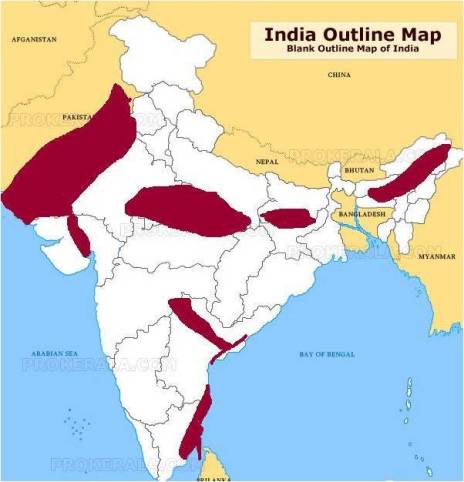Solar Technologies- What do you feel about its future?
 (This is a series of articles on the various technologies that can be employed to trap the sun’s energy. This is the first part of the series.)
(This is a series of articles on the various technologies that can be employed to trap the sun’s energy. This is the first part of the series.)
Almost every discussion on solar technology begins with the inevitable question- What about the low efficiency and high cost? People doubt whether solar can be economical enough; if it will ever be able to compete with coal? But is there any technology which did not have these two hurdles initially? I feel solar has the potential to succeed the way telecom has done in India. Remember the time when customers were charged for incoming calls and possessing a cell phone was luxury. While government policies no doubt helped the telecom sector penetrate each and every corner of India, credit also goes to the brave Indians who embraced the cell phones without prejudice. The people who paid initially for incoming calls made it possible for modern mobile telephony to succeed. R&D efforts usually go into technologies that people like and sadly, no matter how good a technology is; unless it is efficient and cheap- it will not succeed.
Almost all of us have used solar power in one way or the other. Most people have their first experience in childhood when they use a lens to light up a piece of paper. I had a solar powered watch for a long time and it served me well. Solar is ideal for small applications such as calculators and watches. For remote locations, solar lanterns are a good alternative.
In the wake of the Fukushima incident, people have had a rethink on technologies such as solar. There can be no arguing on the fact that solar energy is clean energy; is infinite (will always be there as long as we have the sun) and that nobody can stop it. While supplies of oil are worst hit in times of a crisis or war, solar energy doesn’t suffer from such drawbacks. Perhaps the cleanest among all solar technologies would be the Solar PV (photovoltaics) which convert sunlight by employing the photo electric effect. If batteries are not used then it becomes a very convenient technology but batteries ensure that we have power during the night time. Safe disposal of used batteries or reuse will ensure that the energy source remains clean.
Solar energy doesn’t pollute or generate toxic waste in its operation. It is especially advantageous for tropical countries as a good alternative source of energy for it can be used in a variety of locations unlike Hydro for example. However, solar is also unreliable as a cloudy sky means the efficiency would dramatically reduce.
Broadly speaking, Solar Technologies can be clubbed into the following two categories-
1) Solar PV, and
2) CSP or Concentrating Solar Power
The CSP consists of various technologies such as Parabolic Trough, Linear Fresnel Reflectors, Compact Linear Fresnel Reflector (CLFR), Stirling Solar Dish, Solar Power Tower, Solar Pond etc.
The economics of the various solar technologies will depend on the efficiency of the process which is employed for utilizing them. Unless the operating costs are pretty much similar if not equal to conventional technologies that make use of fossil fuels, they will not be attractive. However, in order to design more efficient operating systems, a reliable solar energy database is an absolute requirement. The location, amount of solar insolation and the atmospheric and climatic conditions would all be instrumental in designing more efficient systems that can incorporate effective corrections according to the locations and the changing weather conditions.
Read Part 2, Part 3 and Part 4
Please read our relevant posts here;
State wise CFA and Capacity of Off-Grid solar installations under the JNNSM (2010-11)
How solar PV projects can earn carbon credits?
India’s first solar PV project registered under the CDM
Image Credit – afloresm, Wikipedia



hi nice post, i have to comment to say your website is awesome, i’m glad i found your blog.
Great post at Solar Technologies- What do you feel about its future?
I was checking continuously this blog and I’m impressed! Extremely useful info specially the last part. I was looking for this particular info for a very long time. Thank you and best of luck.